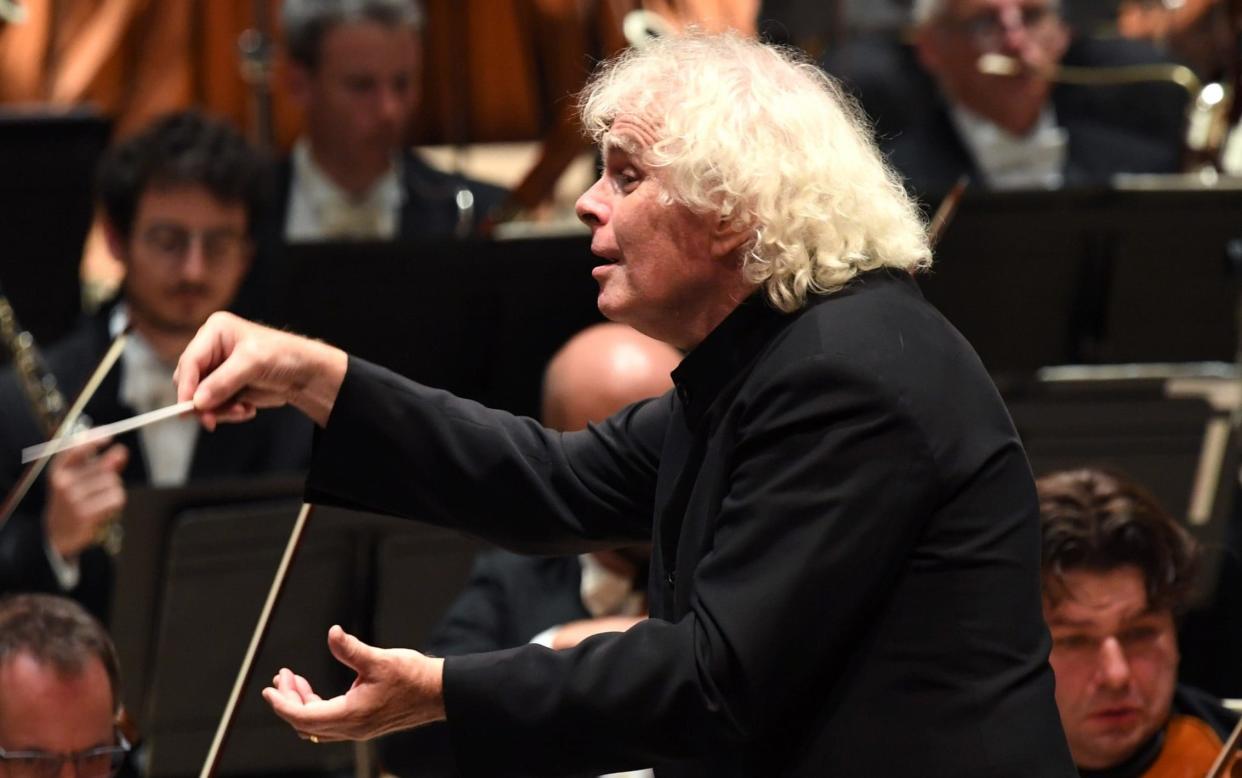Simon Rattle/LSO at Barbican, review - an incandescent performance of Tippett and Mahler's final works

Continuing their exploration of late masterpieces, Simon Rattle and the London Symphony Orchestra (LSO) paired the very final works of Tippett and Mahler in a concert that lived up to its promise as a highlight of the season. No one who heard the remarkable 1995 premiere of Tippett's The Rose Lake or any of the subsequent performances by the LSO under Colin Davis will have countenanced missing of this rare revival. And it seemed fitting that Sunday's performance was given exactly 25 years to the day (22 April 1993) since Tippett had finished the score.
Inspired by the dusky pink waters of Lake Retba in Senegal, The Rose Lake is a mysterious, deeply evocative half-hour tone poem that — despite calling for a huge percussion section, including a battery of rototoms — avoids any cliches of musical tourism. Rattle underlined its essential lyricism yet structural rigour as he traced its arc from deep stirrings to a transcendent shimmer and back again. Some almost Wagnerian harmonies suggested Retba meeting the Rhine.
A visionary composer who since his centenary year of 2005 has suffered woeful neglect (only his oratorio A Child of Our Time is widely performed), Tippett needs a champion. Rattle has conducted relatively little Tippett over the years, but let's hope this unlocks more: given that audiences follow whatever he programmes, a focus on Tippett from him would significantly boost the composer's fortunes.
Mahler may need no such help, but performances as incandescent as this are few and far between. Conducting Deryck Cooke's "performing version" of the Tenth Symphony — left unfinished at the time of Mahler's death, it was first heard at the 1964 Proms played indeed by the LSO — Rattle drew outstanding contributions right from the opening's solitary, soul-searching viola lines that were soon gathered up by the whole orchestra in an Adagio of magnificent anguish. This was also a tautly played Tenth, making the sly, sideways glances of the central Purgatorio movement all the more effective.
But it was not all about sound, and Rattle displayed magnificent grasp of the entire work's structure. Everything led towards the finale and a realm in which the dying composer had already left his characteristic funeral march rhythms behind — replacing them with eerie muffled drumbeats and ethereal flute solo. Perfectly capturing the aura of what might controversially be called Mahler's greatest symphony, Rattle has surely done nothing finer since his arrival at the LSO.
Simon Rattle conducts the LSO in Mahler's Ninth on April 26: www.lso.co.uk

